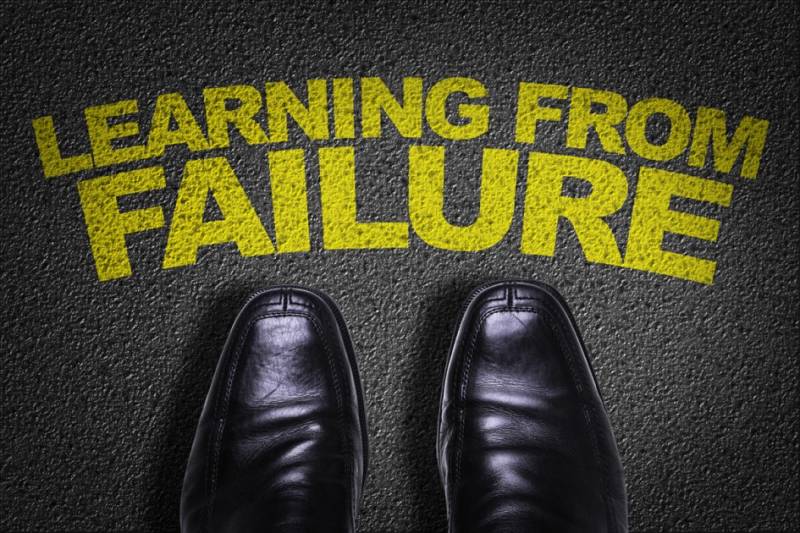One of the key differences between Silicon Valley and the rest of the entrepreneurial world, is that the rest of the world does not celebrate failure as much as it should. Here in UK, “success” is the primary focus, and this is directly perpetuated by the media, and what they are willing to show – top dollar-value fundraisers, large acquisitions, and the general idea that the ‘start-up office’ is always a sexy and exciting place to work.
Like many entrepreneurs in Silicon Valley, however, we see the value in highlighting our past failures – demonstrating what we have learned and how we plan to adapt and grow. When we say failures, we are not referring to your job interview-esque ‘weaknesses’ which actually demonstrate a strength, but rather true entrepreneurial failures that we have accepted and learned from.
The ‘not so viral’ video
Every start-up wishes to mimic the success of the top viral marketing videos, such as the video used by ‘Dollar Shave Club,’ which received millions of views and converted many viewers into clients. The idealistic goal is that upon the distribution of your successful viral marketing video, your company will receive substantial acquisition interest, the end-goal for many start-ups. We are no different, and so even we were motivated to create a viral video. Unfortunately, the end result was nowhere near as impressive as some other campaigns. From this experience, however, we arrived at the conclusion that with our specialised offering, a viral video would be redundant as our target clients are not interested in flashy marketing efforts, but rather hearing about the technical advantages of our product and how it can be tailored to meet their needs as investors. A viral marketing video is more applicable when the product or service is relevant to a massive target market, where viewers will take the initiative to send the video to their friends or share on social media given it’s overarching relevance. Keeping this in mind for future videos, we have decided to design our videos better to our target clients, highlighting product features and specification while minimizing flashy marketing gimmicks. Fortunately, the agency we worked with gave us a great deal, and so the overall costs of making the video were very low.
Here it is – hope it brings a smile to your face
Motivating employees who are not money driven
Entrepreneurs are a demanding and highly-motivated breed, with non-traditional factors besides financial compensation motivating their performance. While in principle we expect everyone on our team to be motivated by the same factors, primarily income, this has proven to be far from the case. Entrepreneurs are very different from the traditional employee, and have a much larger stake in the company. Therefore, factors such as interesting work, a stimulating work environment, active growth plans and an entrepreneurial work culture take a larger role in driving our employees. One thing that I have personally learned as the CEO of CityFALCON, is that you can’t always motivate people with money. In fact, I lost one of my star developers in 2015, because I failed to realise he was motivated solely by the quality of work. Money and everything else was secondary. Going forwards, we learned the importance of fostering a stimulating and entrepreneurial work culture, where our employees are constantly provided the opportunity to branch out and tackle new projects, and encouraged to pursue their own self-learning. We have taken active steps to better inform and involve our employees in the strategic decision-making of the company, and solidify our team dynamic through an increased number of meetings and team activities.
Bots don’t always work
We were spending too much time manually marketing on a social network. The work was very systematic and so we decided to use their API and automate the whole process. We had one developer working on it for a month but the cost benefit analysis made was worth it. When we were ready to launch, the team was super excited and all ready to relax while a bot did all the marketing. Little did we know that as soon as we launched it, the social network detected it as spam and all our work went to waste. In hindsight, we should have built a prototype and tested it out before spending a month on it. Always good to stick to the basics of a lean start-up.
Getting banned by a major site during growth hacking
We have a young and energetic marketing team, and at times in all the excitement, we can indulge in self-promotion. One of the sites that was bringing us a lot of traffic banned us for breaking their self-promotion rules. We had discussions with them but had to suffer a six months ban on the site. Things are back to normal now but a lesson well learnt.
Conclusion
We as a team are ready for failure and failures mean we are trying real hard. The one thing we can’t tolerate is not trying.





Leave a Reply